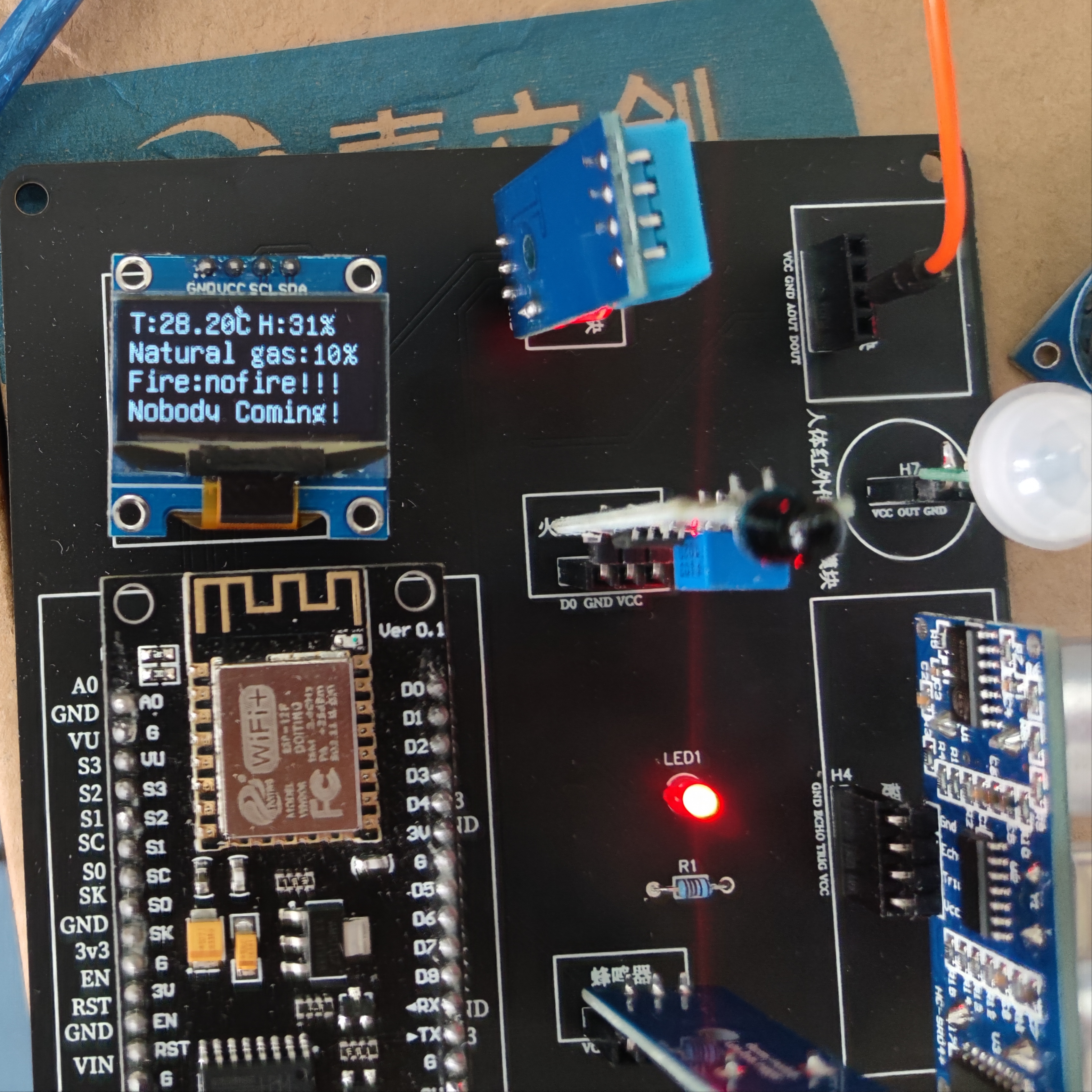39.linux下安装libssh2:测试远程执行shell命令
目录一:libssh2介绍:二:安装:二:测试ssh2功能:远程执行主机shell命令:一:libssh2介绍:1.libssh2是一个C 函数库,用来实现SSH2协议。SSH2是一套安全通讯协议框架(早期的SSH1由于存在安全漏洞),基于SSH2协议的产品主要有openssh,putty,SSH Secure Shell Client等,这些都是开源的,但是这些代码非常难懂而且复杂,一个个函数深
一:libssh2介绍:
1.libssh2是一个C 函数库,用来实现SSH2协议。
SSH2是一套安全通讯协议框架(早期的SSH1由于存在安全漏洞),基于SSH2协议的产品主要有openssh,putty,SSH Secure Shell Client等,这些都是开源的,但是这些代码非常难懂而且复杂,一个个函数深层次的调用很快就让人在C语言代码的海洋中迷失了方向,妄图通过从这些开源软件中抽取程序代码段来“组装”自己的应用程序是非一般人所能实现的。不过还好网络上出现了一些开源的SSH2开发库,利用这些开发库开发自己的SSH2程序却要简单得多,由于这些开发库都是开源的,往往是针对linux平台的,而且一般只提供了源代码。
二:安装:
1.下载:
https://www.libssh2.org/
2.解压安装:
sudo tar -zxvf libssh2-1.9.0.tar.gz -C .
mkdir install_lib
sudo ./configure --prefix=/home/aston/huawei/libssh2-1.9.0/install_lib --with-openssl CPPFLAGS="-I/home/aston/huawei/openssl-1.1.1d/install_lib/include" LDFLAGS="-L/home/aston/huawei/openssl-1.1.1d/install_lib/lib"
sudo make
sudo make install
注:
CPPFLAGS需指定openssl的头文件路径;
LDFLAGS需指定openssl的库路径;
3.安装完成:

三:测试ssh2功能:远程执行主机shell命令:
测试文件:
"D:\share\source_insight\main_135\obs_sdk\libssh2-1.9.0\example\ssh2_exec.c"
代码:
/*
* Sample showing how to use libssh2 to execute a command remotely.
*
* The sample code has fixed values for host name, user name, password
* and command to run.
*
* Run it like this:
*
* $ ./ssh2_exec 127.0.0.1 user password "uptime"
*
*/
//#include "libssh2_config.h"
#include <libssh2.h>
#include <sys/socket.h>
#include <netinet/in.h>
#include <unistd.h>
#include <arpa/inet.h>
#include <stdlib.h>
#ifdef HAVE_WINSOCK2_H
# include <winsock2.h>
#endif
#ifdef HAVE_SYS_SOCKET_H
# include <sys/socket.h>
#endif
#ifdef HAVE_NETINET_IN_H
# include <netinet/in.h>
#endif
#ifdef HAVE_SYS_SELECT_H
# include <sys/select.h>
#endif
# ifdef HAVE_UNISTD_H
#include <unistd.h>
#endif
#ifdef HAVE_ARPA_INET_H
# include <arpa/inet.h>
#endif
#ifdef HAVE_SYS_TIME_H
#include <sys/time.h>
#endif
#include <sys/types.h>
#ifdef HAVE_STDLIB_H
#include <stdlib.h>
#endif
#include <fcntl.h>
#include <errno.h>
#include <stdio.h>
#include <ctype.h>
static int waitsocket(int socket_fd, LIBSSH2_SESSION *session)
{
struct timeval timeout;
int rc;
fd_set fd;
fd_set *writefd = NULL;
fd_set *readfd = NULL;
int dir;
timeout.tv_sec = 10;
timeout.tv_usec = 0;
FD_ZERO(&fd);
FD_SET(socket_fd, &fd);
/* now make sure we wait in the correct direction */
dir = libssh2_session_block_directions(session);
if(dir & LIBSSH2_SESSION_BLOCK_INBOUND)
readfd = &fd;
if(dir & LIBSSH2_SESSION_BLOCK_OUTBOUND)
writefd = &fd;
rc = select(socket_fd + 1, readfd, writefd, NULL, &timeout);
return rc;
}
int main(int argc, char *argv[])
{
const char *hostname = "127.0.0.1";
const char *commandline = "uptime";
const char *username = "user";
const char *password = "password";
unsigned long hostaddr;
int sock;
struct sockaddr_in sin;
const char *fingerprint;
LIBSSH2_SESSION *session;
LIBSSH2_CHANNEL *channel;
int rc;
int exitcode;
char *exitsignal = (char *)"none";
int bytecount = 0;
size_t len;
LIBSSH2_KNOWNHOSTS *nh;
int type;
if(argc > 1)
/* must be ip address only */
hostname = argv[1];
if(argc > 2) {
username = argv[2];
}
if(argc > 3) {
password = argv[3];
}
if(argc > 4) {
commandline = argv[4];
}
rc = libssh2_init(0);
if(rc != 0) {
fprintf(stderr, "libssh2 initialization failed (%d)\n", rc);
return 1;
}
hostaddr = inet_addr(hostname);
/* Ultra basic "connect to port 22 on localhost"
* Your code is responsible for creating the socket establishing the
* connection
*/
sock = socket(AF_INET, SOCK_STREAM, 0);
sin.sin_family = AF_INET;
sin.sin_port = htons(22);
sin.sin_addr.s_addr = hostaddr;
if(connect(sock, (struct sockaddr*)(&sin),
sizeof(struct sockaddr_in)) != 0) {
fprintf(stderr, "failed to connect!\n");
return -1;
}
/* Create a session instance */
session = libssh2_session_init();
if(!session)
return -1;
/* tell libssh2 we want it all done non-blocking */
libssh2_session_set_blocking(session, 0);
/* ... start it up. This will trade welcome banners, exchange keys,
* and setup crypto, compression, and MAC layers
*/
while((rc = libssh2_session_handshake(session, sock)) ==
LIBSSH2_ERROR_EAGAIN);
if(rc) {
fprintf(stderr, "Failure establishing SSH session: %d\n", rc);
return -1;
}
nh = libssh2_knownhost_init(session);
if(!nh) {
/* eeek, do cleanup here */
return 2;
}
/* read all hosts from here */
libssh2_knownhost_readfile(nh, "known_hosts",
LIBSSH2_KNOWNHOST_FILE_OPENSSH);
/* store all known hosts to here */
libssh2_knownhost_writefile(nh, "dumpfile",
LIBSSH2_KNOWNHOST_FILE_OPENSSH);
fingerprint = libssh2_session_hostkey(session, &len, &type);
if(fingerprint) {
struct libssh2_knownhost *host;
#if LIBSSH2_VERSION_NUM >= 0x010206
/* introduced in 1.2.6 */
int check = libssh2_knownhost_checkp(nh, hostname, 22,
fingerprint, len,
LIBSSH2_KNOWNHOST_TYPE_PLAIN|
LIBSSH2_KNOWNHOST_KEYENC_RAW,
&host);
#else
/* 1.2.5 or older */
int check = libssh2_knownhost_check(nh, hostname,
fingerprint, len,
LIBSSH2_KNOWNHOST_TYPE_PLAIN|
LIBSSH2_KNOWNHOST_KEYENC_RAW,
&host);
#endif
fprintf(stderr, "Host check: %d, key: %s\n", check,
(check <= LIBSSH2_KNOWNHOST_CHECK_MISMATCH)?
host->key:"<none>");
/*****
* At this point, we could verify that 'check' tells us the key is
* fine or bail out.
*****/
}
else {
/* eeek, do cleanup here */
return 3;
}
libssh2_knownhost_free(nh);
if(strlen(password) != 0) {
/* We could authenticate via password */
while((rc = libssh2_userauth_password(session, username, password)) ==
LIBSSH2_ERROR_EAGAIN);
if(rc) {
fprintf(stderr, "Authentication by password failed.\n");
goto shutdown;
}
}
else {
/* Or by public key */
while((rc = libssh2_userauth_publickey_fromfile(session, username,
"/home/user/"
".ssh/id_rsa.pub",
"/home/user/"
".ssh/id_rsa",
password)) ==
LIBSSH2_ERROR_EAGAIN);
if(rc) {
fprintf(stderr, "\tAuthentication by public key failed\n");
goto shutdown;
}
}
#if 0
libssh2_trace(session, ~0);
#endif
/* Exec non-blocking on the remove host */
while((channel = libssh2_channel_open_session(session)) == NULL &&
libssh2_session_last_error(session, NULL, NULL, 0) ==
LIBSSH2_ERROR_EAGAIN) {
waitsocket(sock, session);
}
if(channel == NULL) {
fprintf(stderr, "Error\n");
exit(1);
}
while((rc = libssh2_channel_exec(channel, commandline)) ==
LIBSSH2_ERROR_EAGAIN) {
waitsocket(sock, session);
}
if(rc != 0) {
fprintf(stderr, "Error\n");
exit(1);
}
for(;;) {
/* loop until we block */
int rc;
do {
char buffer[0x4000];
rc = libssh2_channel_read(channel, buffer, sizeof(buffer) );
if(rc > 0) {
int i;
bytecount += rc;
fprintf(stderr, "We read:\n");
for(i = 0; i < rc; ++i)
fputc(buffer[i], stderr);
fprintf(stderr, "\n");
}
else {
if(rc != LIBSSH2_ERROR_EAGAIN)
/* no need to output this for the EAGAIN case */
fprintf(stderr, "libssh2_channel_read returned %d\n", rc);
}
}
while(rc > 0);
/* this is due to blocking that would occur otherwise so we loop on
this condition */
if(rc == LIBSSH2_ERROR_EAGAIN) {
waitsocket(sock, session);
}
else
break;
}
exitcode = 127;
while((rc = libssh2_channel_close(channel)) == LIBSSH2_ERROR_EAGAIN)
waitsocket(sock, session);
if(rc == 0) {
exitcode = libssh2_channel_get_exit_status(channel);
libssh2_channel_get_exit_signal(channel, &exitsignal,
NULL, NULL, NULL, NULL, NULL);
}
if(exitsignal)
fprintf(stderr, "\nGot signal: %s\n", exitsignal);
else
fprintf(stderr, "\nEXIT: %d bytecount: %d\n", exitcode, bytecount);
libssh2_channel_free(channel);
channel = NULL;
shutdown:
libssh2_session_disconnect(session,
"Normal Shutdown, Thank you for playing");
libssh2_session_free(session);
close(sock);
fprintf(stderr, "all done\n");
libssh2_exit();
return 0;
}
2.报错:没有libssh2_config.h头文件:
解决:注释掉,再添加必要的C库头文件即可。
//#include "libssh2_config.h"
#include <libssh2.h>
#include <sys/socket.h>
#include <netinet/in.h>
#include <unistd.h>
#include <arpa/inet.h>
#include <stdlib.h>
3.执行本地aston用户的命令:显示主目录文件列表:
./app.out 127.0.0.1 aston root ls


4.如需要指令长指令,如:ls -l ,则需要使用双引号括起来"ls -l"

四:移植libssh2:
sudo tar -zxvf libssh2-1.9.0.tar.gz -C .
sudo chown -R aston libssh2-1.9.0
mkdir install_lib
sudo ./configure --prefix=/home/aston/huawei_linux/libssh2-1.9.0/install_lib --host=arm-linux CC=/opt/hisi-linux/x86-arm/arm-hisiv300-linux/target/bin/arm-hisiv300-linux-gcc CXX=/opt/hisi-linux/x86-arm/arm-hisiv300-linux/target/bin/arm-hisiv300-linux-g++ --with-openssl CFLAGS="-I/home/aston/huawei_linux/openssl-1.1.1d/install_lib/include -I/home/aston/huawei_linux/zlib-1.2.11/install_lib/include" LDFLAGS="-L/home/aston/huawei_linux/openssl-1.1.1d/install_lib/lib -L/home/aston/huawei_linux/zlib-1.2.11/install_lib/lib -lcrypto -lssl -ldl -lpthread -lz"
/home/aston/huawei_linux/zlib-1.2.11/install_lib/lib
sudo make
sudo make install
注:
CPPFLAGS 需指定openssl的头文件路径;
LDFLAGS 需指定openssl的库路径;
报错1:
…/src/.libs/libssh2.so: undefined reference to `dlopen’
解决: ./configure的LDFLAGS添加参数: -ldl -lpthread
LDFLAGS="-L/home/aston/huawei_linux/openssl-1.1.1d/install_lib/lib -ldl -lpthread"
报错2:
../src/.libs/libssh2.so: undefined reference to `deflate'
../src/.libs/libssh2.so: undefined reference to `inflate'
../src/.libs/libssh2.so: undefined reference to `inflateInit_'
../src/.libs/libssh2.so: undefined reference to `deflateInit_'
../src/.libs/libssh2.so: undefined reference to `zError'
../src/.libs/libssh2.so: undefined reference to `pthread_atfork'
../src/.libs/libssh2.so: undefined reference to `inflateEnd'
../src/.libs/libssh2.so: undefined reference to `deflateEnd'
collect2: error: ld returned 1 exit status
解决: ./configure的LDFLAGS添加参数: -lz
LDFLAGS="-L/home/aston/huawei_linux/openssl-1.1.1d/install_lib/lib -L/home/aston/huawei_linux/zlib-1.2.11/install_lib/lib -ldl -lpthread -lz"
遇到的问题3:
/opt/hisi-linux/x86-arm/arm-himix400-linux/host_bin/../lib/gcc/arm-linux-gnueabi/7.3.0/../../../../arm-linux-gnueabi/bin/ld: warning: libssl.so.1.1, needed by ../src/.libs/libssh2.so, not found (try using -rpath or -rpath-link)
/opt/hisi-linux/x86-arm/arm-himix400-linux/host_bin/../lib/gcc/arm-linux-gnueabi/7.3.0/../../../../arm-linux-gnueabi/bin/ld: warning: libcrypto.so.1.1, needed by ../src/.libs/libssh2.so, not found (try using -rpath or -rpath-link)
/opt/hisi-linux/x86-arm/arm-himix400-linux/host_bin/../lib/gcc/arm-linux-gnueabi/7.3.0/../../../../arm-linux-gnueabi/bin/ld: ../src/.libs/libssh2.so: undefined reference to `EVP_MD_CTX_free@OPENSSL_1_1_0'
/opt/hisi-linux/x86-arm/arm-himix400-linux/host_bin/../lib/gcc/arm-linux-gnueabi/7.3.0/../../../../arm-linux-gnueabi/bin/ld: ../src/.libs/libssh2.so: undefined reference to `EVP_PKEY2PKCS8@OPENSSL_1_1_0'
/opt/hisi-linux/x86-arm/arm-himix400-linux/host_bin/../lib/gcc/arm-linux-gnueabi/7.3.0/../../../../arm-linux-gnueabi/bin/ld: ../src/.libs/libssh2.so: undefined reference to `DSA_free@OPENSSL_1_1_0'
/opt/hisi-linux/x86-arm/arm-himix400-linux/host_bin/../lib/gcc/arm-linux-gnueabi/7.3.0/../../../../arm-linux-gnueabi/bin/ld: ../src/.libs/libssh2.so: undefined reference to `BN_rand@OPENSSL_1_1_0'
原因是:未添加库的连接:-lcrypto -lssl 参数:
LDFLAGS="-L/opt/huawei_linux/openssl-1.1.1d/install_lib/lib -L/opt/huawei_linux/zlib-1.2.11/install_lib/lib -lcrypto -lssl -ldl -lpthread -lz"
重新编译成功.
六:ARM设备上测试:(暂未成功)
测试:
./app.out 127.0.0.1 root root "ls"
./app.out 127.0.0.1 "" "" "ls"
./app.out 127.0.0.1 "" "" "ls"
./app.out 127.0.0.1 "" "" "ls"
./app.out 127.0.0.1 root "" ls
./app.out 127.0.0.1 root root ls
./app.out 192.168.1.141 aston root "ls"
./app.out 192.168.1.141 root root "ls"
更多推荐
 已为社区贡献1条内容
已为社区贡献1条内容









所有评论(0)